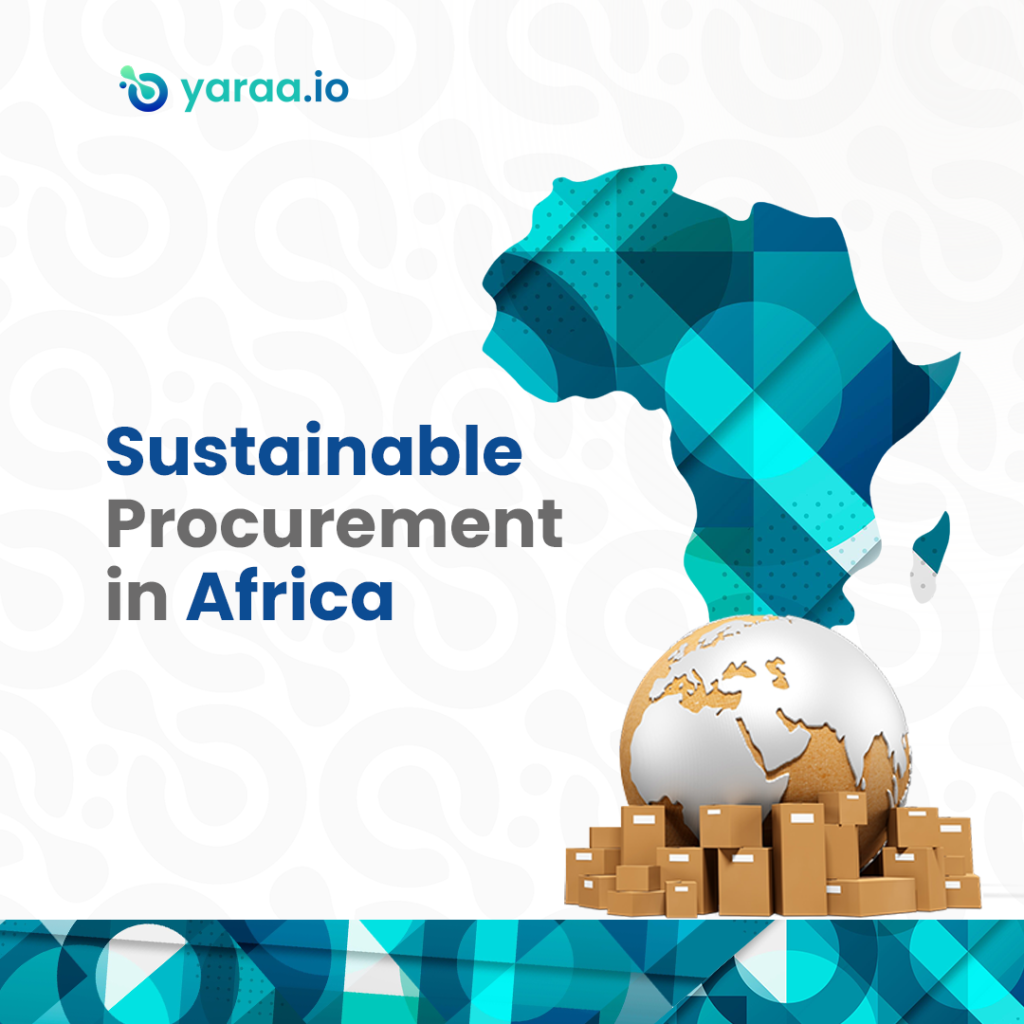In today’s rapidly changing business landscape, organizations are paying more attention to sustainability and ethical considerations in their procurement processes.
This is especially true for African companies, which are facing increasing pressure from stakeholders to ensure that their supply chains are environmentally and socially responsible.
The concept of sustainable procurement refers to the process of acquiring goods, services, and works that meet the needs of the present without compromising the ability of future generations to meet their own needs.
In this article, we will discuss the importance of sustainable procurement in Africa, the strategies and implementation for sustainable procurement, and some of the challenges that African organizations may face when implementing sustainable procurement practices.
Also read: STREAMLINING PROCUREMENT IN AFRICA
Importance of Sustainable Procurement in Africa
Sustainable procurement is becoming increasingly important in Africa due to the growing awareness of environmental and social issues in the region. The African continent is facing numerous environmental challenges such as deforestation, soil degradation, and climate change, as well as social issues such as poverty, inequality, and corruption. These issues are not only affecting the people living in Africa but also affecting the businesses operating in the region.
In light of these challenges, African companies are being encouraged to adopt sustainable procurement practices to reduce their impact on the environment and society. By doing so, companies can contribute to the achievement of the United Nations Sustainable Development Goals (SDGs), and also enhance their reputation, increase their competitiveness, and improve their bottom line.

Strategies and Implementation for Sustainable Procurement
There are several strategies and implementations that organizations in Africa can adopt to ensure that their procurement processes are sustainable. The following are some of the key strategies:
1. Develop a Sustainable Procurement Policy
The first step to implementing sustainable procurement is to develop a comprehensive policy that outlines the organization’s commitment to sustainable procurement. This policy should clearly define the goals and objectives of the organization’s sustainable procurement program, as well as the criteria for evaluating suppliers and assessing the sustainability of products and services.
2. Supplier Assessment and Evaluation
Once the sustainable procurement policy has been developed, the next step is to assess and evaluate suppliers to ensure that they meet the organization’s sustainability criteria. This may involve conducting site visits, reviewing supplier sustainability reports, and engaging in discussions with suppliers to understand their sustainability practices.
3. Sustainable Product Assessment
Organizations in Africa can also assess the sustainability of the products and services they purchase by considering factors such as the product’s life cycle, energy efficiency, and environmental impact. This can be done through the use of sustainability rating systems, such as the Global Reporting Initiative (GRI) or the Carbon Trust Standard.
4. Collaboration with Suppliers
Organizations in Africa can also collaborate with suppliers to encourage them to adopt sustainable practices. This may involve providing training and support to suppliers and working with suppliers to develop sustainability programs and initiatives.
5. Monitoring and Reporting
Finally, organizations in Africa must monitor and report on their sustainable procurement practices. This may involve tracking the sustainability performance of suppliers, conducting sustainability audits, and reporting on the organization’s sustainability performance to stakeholders.
Challenges to Implementing Sustainable Procurement in Africa
While sustainable procurement is becoming increasingly important in Africa, there are several challenges that organizations may face when implementing sustainable procurement practices. Some of the key challenges include:
1. Lack of Awareness and Understanding
There is often a lack of awareness and understanding of the benefits of sustainable procurement among African organizations, as well as among suppliers. This can make it difficult for organizations to engage with suppliers and encourage them to adopt sustainable practices.
2. Limited Resources
Many African organizations may have limited resources, including financial, human, and technical resources, which can make it difficult to implement sustainable procurement practices. This may result in organizations having to prioritize their sustainability initiatives and focus on areas where they have the most impact.
3. Weak Supply Chain Management Systems
In some African countries, supply chain management systems may be weak, resulting in a lack of transparency and accountability. This can make it difficult for organizations to monitor and assess the sustainability of their suppliers and products.
4. Lack of Standardized Sustainability Metrics
Another challenge is the lack of standardized sustainability metrics and data in the African market. This makes it difficult for organizations to compare the sustainability performance of suppliers and products, and to make informed purchasing decisions.
5. Cultural and Political Barriers
Finally, cultural and political barriers may exist in some African countries, which can make it difficult for organizations to engage with suppliers and encourage them to adopt sustainable practices. For example, some African countries may have weak regulations and laws related to environmental and social sustainability, which can make it difficult for organizations to enforce sustainable procurement practices.
Conclusion
Sustainable procurement is becoming increasingly important in Africa, as organizations are being encouraged to adopt sustainable practices to reduce their impact on the environment and society.
There are several strategies and implementations that organizations can adopt to ensure that their procurement processes are sustainable, including developing a sustainable procurement policy, supplier assessment and evaluation, sustainable product assessment, collaboration with suppliers, and monitoring and reporting. All these have been simplified for organizations on Yaraa, to take procurement in Africa to the next level.
Implementing sustainable procurement practices using Yaraa can bring numerous benefits to African organizations, including improved reputation, increased competitiveness, and improved bottom line.
This is an interesting concept
We are glad you find this helpful.